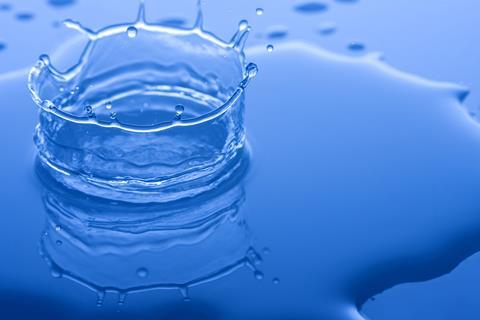Group aims to save over 100,000m³ of water for fresh fruit and vegetables each year by installing purification system in Belgium
Greenyard Fresh Belgium and integrated water utilities company Pidpa have entered the final phase of their plan to install a new on-site water purification system on the former’s site in Sint-Katelijne-Waver.

According to Greenyard, the installation has an innovative biological treatment method, which will reduce its annual intake of fresh water for cleaning and rinsing fruit and vegetables by 75 per cent.
The processing water will be purified and recuperated via the installation. Combined with the existing on-site ground water extraction, the site will no longer be using city water for its operations unless necessary.
This investment will allow Greenyard to further improve its environmental performance and to reduce costs, the company noted.
Together with Pipda, Greenyard Fresh Belgium intends to purify and reuse over 100,000m³ of its rinsing water for fruit and vegetables, each year.
This corresponds with one of the group’s five Sustainability Ambitions to lower the company’s water footprint. By the end of 2025, the Greenyard group wants to reduce its own total water intensity by 10 per cent compared to 2019.
“Smart water use plays an important role to further improve our environmental performance and reduce costs,” said Yannick Peeters, managing director at Greenyard Fresh Belgium. ”At Greenyard, we constantly take initiatives to improve our operations, making sustainability an integral part of everything we do.”
The water purification system will consist of a biological treatment using granulated activated sludge, followed by a sand filter, ultrafiltration, and reverse osmosis with potentially a last step of ultra-violet treatment.
”Essentially, a high-tech filtration system that will allow for the reuse of processing water in an energy efficient way – ensuring the safe and sustainable annual reuse of around 105,000m³ of rinsing water,” the group outlined.
The water will be qualitatively equal to drinking water after the process, which is key for food processing, Greenyard explained.
The remaining 35,000m³ will come from on-site groundwater extraction, with the possibility to switch to the use of city water when needed.
Greenyard said that in 2021, a pilot installation provided the necessary proof of concept that water recirculation was scalable at its Fresh Belgium’s site.
The pilot was described as an ”important step”, before moving towards an agreement between Greenyard Fresh Belgium and Pidpa for the effective implementation of an industrial-scale water purifier combined with the existing on-site ground water extraction.
The next step in the process is to get the necessary permits before fully deploying the solution.
“As a company, we have evolved from a traditional drinking water producer into an integrated water company,” said Eddy Troosters, chief executive officer at Pidpa.
”We focus on optimising the use of various qualities and quantities of water: decentralised reuse of rainwater in housing development, smart capitation and buffering of surface water for agricultural purposes.
”In this case we take on the engineering, construction, financing, and operations of the installation for reuse of rinse water,” he added. ”By creating a water-as-a-service contract, Greenyard can continue to focus on its core business.”



